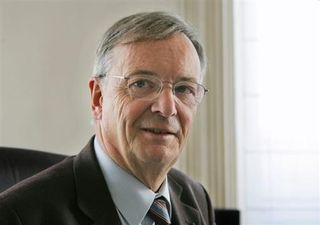French investigation reveals doping "protocols"
Ukrainian U23 riders admitted ways to mask EPO use

A French police investigation following the Tour de l'Avenir in September 2009 has revealed the existence of "masking protocols" to hide the presence of blood booster EPO in anti-doping samples.
Last year, two riders from the Ukrainian team competing in the U23 event, as well as the father of one of them and the team's physiotherapist, were arrested in Besançon for "possession and use of illegal substances used for doping". One of the substance was Actovegin, a calf blood derivative used for recovery which is not on the list of banned substances but is illegal in France. While in police custody, the riders reportedly admitted that they had doped, and revealed procedures to mask their use of EPO during controls.
According to the French Anti-Doping Agency AFLD, a civil party in the subsequent legal investigation, the riders said that they were "heavily doped, notably with EPO. But their samples were negative, because these athletes took the products according to a protocol, elaborated by specialists, that allows them to dope without testing positive in an anti-doping control," said AFLD president Pierre Bordry at a press conference on Thursday.
The investigation concluded that these protocols involved "personal kits to use for each athlete. There is not one substance used [to mask the presence of EPO] but several substances with combined effects. At the same time, it is being done very carefully as each of the substances is administered on such a [small] level that will make it very hard to be detected," said AFLD scientific counselor Michel Rieu.
It seems the uncovered procedures are highly complicated and could only be elaborated by medical experts. "The protocols are very astute and could not have been created by 19- or 20 year-olds. There has to be extremely powerful networks behind them," continued Rieu.
The AFLD and police investigators now hope to uncover these networks, which are believed to operate not only on the U23 level of cycling, but within the professional Elite peloton as well as in other sports. "The networks work well beyond this Besançon affair which is just a small case. But it has the advantage of enlightening us on the way in which this works. It is something much greater that has been improved to perfection in comparison to the past, notably because the financial stakes are more important," added Bordry.
Get The Leadout Newsletter
The latest race content, interviews, features, reviews and expert buying guides, direct to your inbox!
Most Popular


